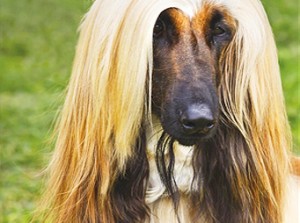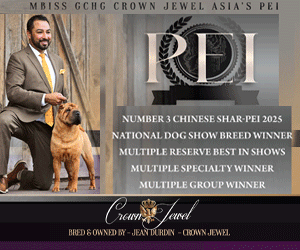Dogs, Beauty and the Gene Pool
232 – August, 2017
BY AMY FERNANDEZ
 It’s sad to say but the purebred brand image is sinking pretty low these days. Long gone are the days when “purebred” was unquestionably the best. Much of the pet owning public now equates it with dodgy quality, unethical production methods, and a risky bet for unwary consumers. Mainstream media can be thanked for drum- ming that message into public consciousness even though most of the reporting responsible for that is better described as a combination of naive moralizing tarted up with a dash of pseudoscientific chit-chat about canine health and welfare. It’s hard to decide what’s worse, the fact that the pub- lic has wholeheartedly bought into this thinly veiled media manipulation or its resounding success. Actually, the most offensive part is the amount of genuinely newsworthy in- formation that gets routinely overlooked in this freewheeling excuse for journalism.
It’s sad to say but the purebred brand image is sinking pretty low these days. Long gone are the days when “purebred” was unquestionably the best. Much of the pet owning public now equates it with dodgy quality, unethical production methods, and a risky bet for unwary consumers. Mainstream media can be thanked for drum- ming that message into public consciousness even though most of the reporting responsible for that is better described as a combination of naive moralizing tarted up with a dash of pseudoscientific chit-chat about canine health and welfare. It’s hard to decide what’s worse, the fact that the pub- lic has wholeheartedly bought into this thinly veiled media manipulation or its resounding success. Actually, the most offensive part is the amount of genuinely newsworthy in- formation that gets routinely overlooked in this freewheeling excuse for journalism.
The most glaringly underreported example of poor journalism is the crucial role purebred dogs have played in genetic research. Generations of detailed pedigree information supplied by breeders added a whole new di- mension to gene mapping, vastly simplifying the tedious hunt to identify inheritance patterns and disease causing mutations. The source of that singular and significant contribution to mankind–a closed studbook and limited gene pool–the gestalt of the modern purebred–is also the basis for those broad indictments. So it’s easy to see why that aspect of the story gets shortchanged. However, it’s far from the only awkward fact getting steamrolled in this anti-purebred trash and bash. There are a million ways to illus- trate that point. However, since we’re on the subject of genetics here’s a couple of interesting items in that cate- gory. They are not only fascinating in their own right, considered in tandem the implications shake the whole foundation of this newly erected cultural touchstone.
The first one, published in Science on April 27, reported the findings of an international research team investigating the age old mystery of domestication. Innovative tools and techniques are providing major insights into the mechanics of the process. Not long ago the idea of extracting and sequencing fossil DNA was pure Jurassic Park wishful thinking. Today it’s bioarcheology, a specialized field that’s rapidly removing a lot of the misguided assumptions and contentious debate surrounding this evolutionary curveball.
Click here to read the complete article232 – August, 2017
Short URL: http://caninechronicle.com/?p=130200
Comments are closed











